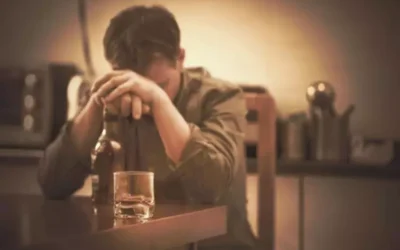Anxiety and Alcohol: Is There a Connection?
Treatment for psychosis and panic attacks will look different and require different forms of treatment. When there’s a known cause, it’s often due to an external stressor, such as a phobia or fear. Though they may occur together, they don’t share similar symptoms, causes, or underlying conditions. All I kept thinking was ‘please don’t let me die’ as I took the elevator down. The staff doctor took my vitals and said I was perfectly healthy, and that it sounded like I was experiencing anxiety.

Understanding the Link Between Alcohol And Panic Attacks
The process can help change your thought patterns, desensitizing you to the underlying distress that can trigger panic attacks. Treatment can help reduce the intensity and frequency of your panic attacks and improve your function in daily life. Many people believe that alcohol is an effective self-medication technique for coping with anxiety and panic attacks, due to the initial sedative effect and feelings of calm that this substance provides. As it turns out, I’m not alone in having anxiety the day after drinking (a.k.a. hangxiety).
Alcohol causes dehydration
- And if I was having a panic attack, I think I would prefer to watch a YouTube video of a guided grounding activity.
- It does so by binding to GABA receptors in the brain—which helps your body to relax and your mind to feel calm.
- A heavy influx of alcohol can lead to your body blocking its own GABA receptors in an attempt to re-establish this equilibrium.
For some people, the fear of having a panic attack is often enough to trigger one. A panic attack causes sudden, temporary feelings of fear and strong physical reactions in response to ordinary, nonthreatening situations. When you’re having a panic attack, you may sweat a lot, does alcohol cause panic attacks have difficulty breathing and feel like your heart’s racing. While alcohol might feel like a solution in the short term, this drinking behavior comes with many problems. When people use alcohol to relieve symptoms of a mental health condition, it can quickly become a “crutch.”
Can you have alcohol anxiety without having an anxiety disorder?
For some drinkers, hangxiety—that’s hangover anxiety, for the uninitiated—is almost as reliable as the pounding headache and queasy stomach. That chill, fun vibe that accompanies having a few (or a bunch) of drinks is gone. Your mind races, maybe your palms sweat, maybe you get a stomachache. Maybe you’re replaying everything you said last night and frantically scrolling through your texts to make sure you didn’t send a message you super wish you hadn’t.
Medical tools and resources
- As with shortness of breath, feeling like you’re choking can also result from hyperventilation.
- Given the possible connection, it’s not surprising that additional research has shown that treating one condition requires adequately addressing the others.
- But if you have feelings of anxiety that are constant, overwhelming, or affect your daily life, there are things you can do, and support that is available to help you manage.
- Therefore, it’s possible to experience both panic attacks and psychosis.
If you can, rest and allow your brain to recover, advises Dr. Bogenschutz. Some people claim that drinking more alcohol helps cure hangovers, but that can only make things worse. “Avoid the temptation to drink alcohol, because that can become a vicious cycle and lead to more severe problems including addiction and more serious withdrawal symptoms,” says Dr. Bogenschutz. Also referred to as anxiety attacks, panic attacks are sudden episodes of intense fear that trigger physical reactions, such as rapid breathing and heart rate. Even if there’s no real danger or nothing that would normally cause fear, people may still experience panic attacks severe enough to make them believe that they’re dying. While coping with these attacks is rough, recovering after a panic attack can be even more difficult.
Alcohol and anxiety: can booze trigger panic attacks?
- A diverse set of stressors — like traumatic events, financial worries or even public speaking — can prompt panic attacks.
- The other thought is just, “Something’s wrong, something’s wrong, something’s wrong.” And then, “Oh god, I can’t stop, why isn’t it stopping?
- A person experiencing psychosis will also likely need therapy, which comes in many forms.
- Their chests could tighten, and some report a sensation of feeling they’re being choked.
‘Alcohol triggers panic attacks but I won’t stop drinking’ – BBC.com
‘Alcohol triggers panic attacks but I won’t stop drinking’.
Posted: Mon, 04 Dec 2017 08:00:00 GMT [source]
